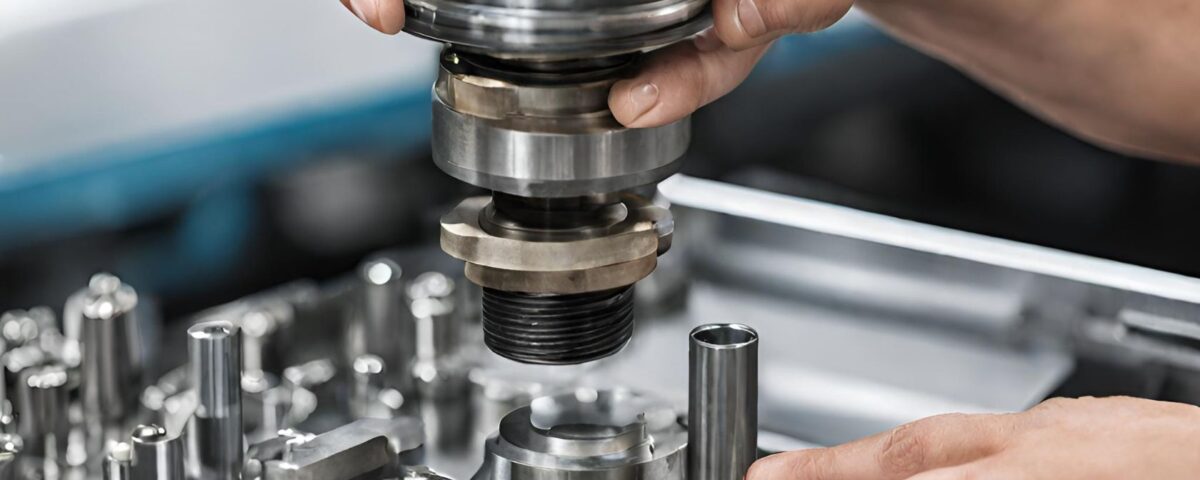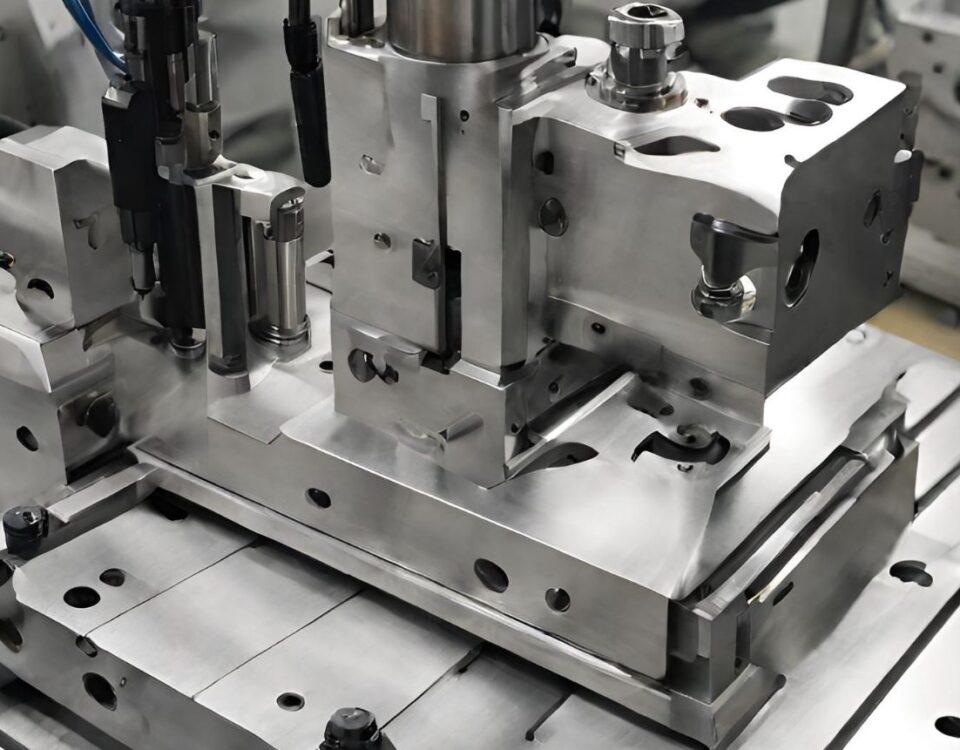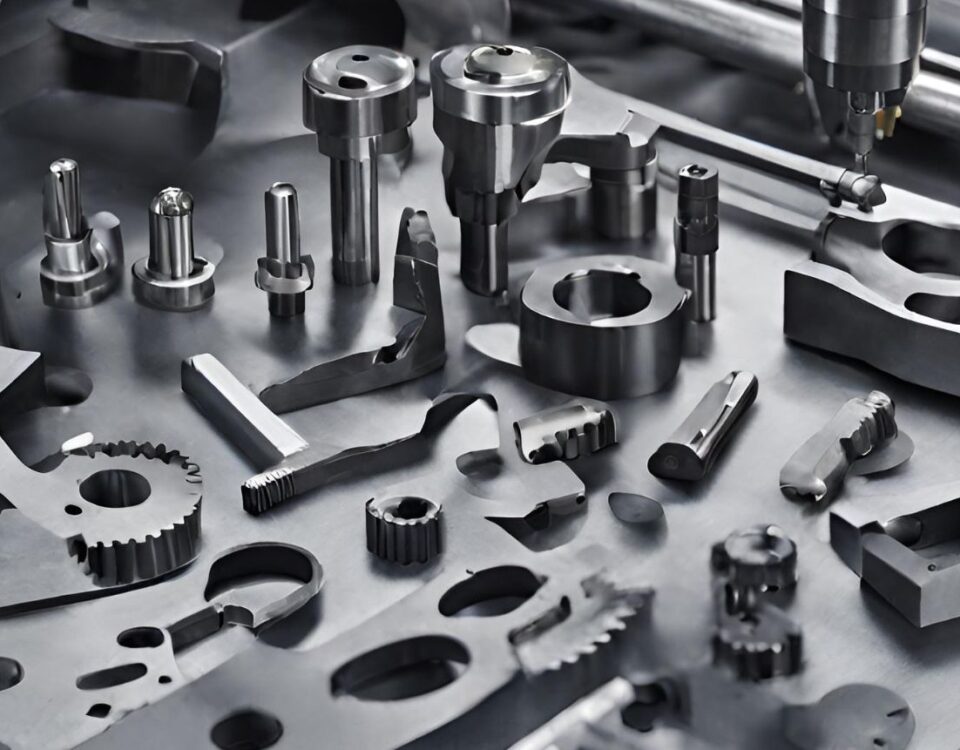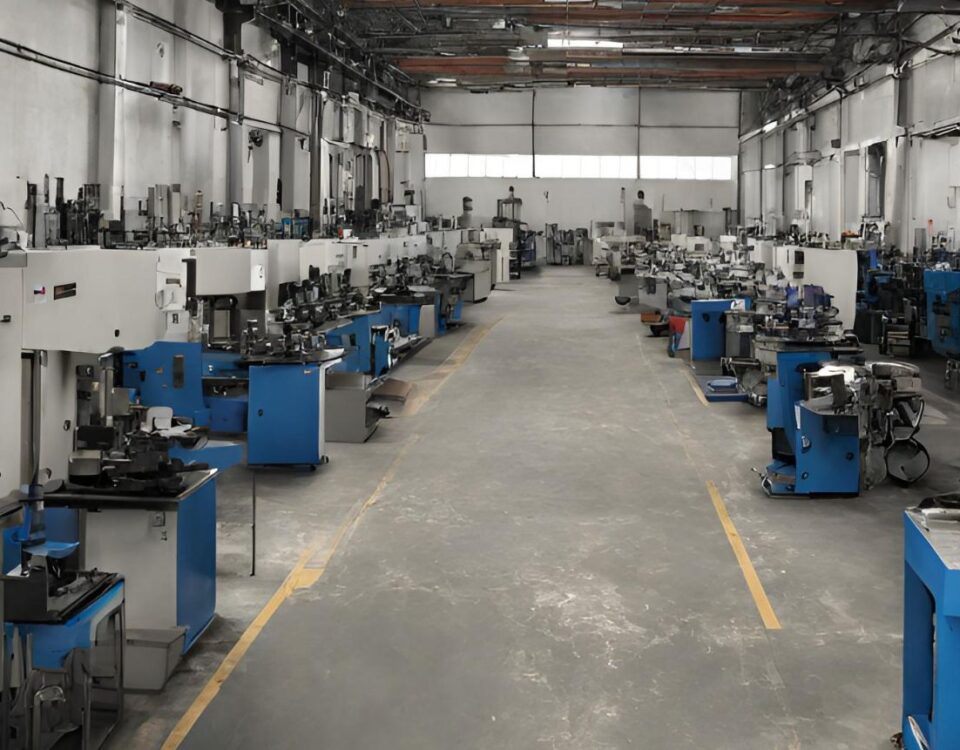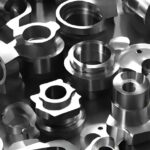
The Importance of Machining Components: Enhancing Efficiency and Precision in Manufacturing
1 March 2024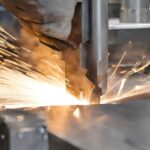
X Ways Custom Metal Fabrication Can Transform Your Business
4 March 2024Precision manufacturing is the backbone of modern industries, ensuring flawless products that meet the highest quality standards. From automotive to aerospace, precision manufacturing plays a crucial role in delivering products that are reliable, accurate, and durable.
In the world of precision manufacturing, attention to detail is everything. Every component, every measurement, every process must be carried out with meticulous precision. This requires advanced technology, skilled craftsmanship, and strict quality control measures.
Mastering the art of precision manufacturing is no easy feat. It requires a deep understanding of materials, a commitment to continuous improvement, and a relentless pursuit of perfection. Companies that excel in precision manufacturing have the ability to create products that surpass expectations and gain a competitive edge in the market.
In this article, we will explore the key principles and techniques of precision manufacturing. We will delve into the importance of advanced machinery and tools, the role of skilled technicians, and the significance of quality control in ensuring flawless products. Whether you are a manufacturer or simply want to learn more about precision manufacturing, this article will provide valuable insights into this essential industry.
The Importance of Precision Manufacturing in Product Quality
Precision manufacturing is vital for ensuring the highest quality products. By using precise measurements and techniques, manufacturers can produce parts and components that fit together perfectly, resulting in products that function flawlessly. Whether it's a precision-engineered engine part or a delicate electronic component, the accuracy and reliability of these products rely on the precision manufacturing process.
In addition to product quality, precision manufacturing also plays a significant role in customer satisfaction. When customers purchase a product, they expect it to work as intended without any issues. Precision manufacturing ensures that products meet the highest performance standards, reducing the risk of defects and malfunctions. By consistently delivering flawless products, manufacturers can build trust and loyalty with their customers.
Precision manufacturing for industries
Precision manufacturing is not limited to a specific industry; it is crucial across various sectors. In the automotive industry, precision manufacturing is essential for producing high-performance engines, transmissions, and suspension systems. In aerospace, precision manufacturing is critical for creating lightweight, durable aircraft components that can withstand extreme conditions. Even in the medical field, precision manufacturing is vital for producing accurate and reliable medical devices.
Key Principles of Precision Manufacturing
Precision manufacturing is built on a set of key principles that guide the entire process. These principles ensure the highest level of accuracy and quality throughout every step of manufacturing. Let's explore some of the fundamental principles of precision manufacturing:
1. Design for Manufacturability (DFM)
Design for Manufacturability (DFM) is a principle that focuses on designing products that can be efficiently and cost-effectively manufactured. By considering manufacturing constraints and limitations during the design phase, manufacturers can optimize the production process. DFM involves factors such as material selection, component size and shape, and assembly methods. By incorporating DFM principles, manufacturers can streamline production and minimize the risk of errors or defects.
2. Statistical Process Control (SPC)
Statistical Process Control (SPC) is a quality control technique that involves monitoring and controlling the manufacturing process using statistical methods. SPC allows manufacturers to identify and address variations or abnormalities in the production process, ensuring consistent quality. By collecting and analyzing data, manufacturers can make data-driven decisions to improve processes and reduce defects. SPC helps maintain the highest level of precision in manufacturing.
3. Lean Manufacturing
Lean manufacturing focuses on eliminating waste and improving efficiency in the manufacturing process. It involves identifying and eliminating non-value-added activities, optimizing workflows, and reducing lead times. Lean manufacturing principles, such as Just-In-Time (JIT) production and continuous improvement, help manufacturers achieve higher productivity and cost-effectiveness. By minimizing waste and maximizing value, precision manufacturing becomes even more efficient and effective.
Tools and Technologies Used in Precision Manufacturing
Precision manufacturing relies on a wide range of advanced tools and technologies to achieve the highest level of accuracy and precision. Let's explore some of the key tools and technologies used in precision manufacturing:
1. Computer Numerical Control (CNC) Machines
Computer Numerical Control (CNC) machines are automated machines that use computer programming to control the movement and operation of tools. CNC machines can carry out complex machining operations with high precision and repeatability. They are commonly used in precision manufacturing for tasks such as milling, turning, and grinding. CNC machines offer unmatched accuracy and efficiency, making them indispensable in the precision manufacturing industry.
2. Coordinate Measuring Machines (CMM)
Coordinate Measuring Machines (CMM) are advanced metrology devices used to measure the dimensions and geometric characteristics of objects. CMMs use a probe to capture precise measurements and compare them to the intended specifications. They are essential for quality control in precision manufacturing, ensuring that parts and components meet the required tolerances. CMMs enable manufacturers to verify the accuracy and quality of their products with great precision.
3. Additive Manufacturing (AM)
Additive Manufacturing, also known as 3D printing, is a revolutionary technology that has transformed precision manufacturing. AM allows manufacturers to create complex parts and components layer by layer, using materials such as plastics, metals, and ceramics. Additive manufacturing offers unparalleled design freedom and can produce intricate geometries that would be difficult or impossible to achieve with traditional manufacturing methods. It has opened up new possibilities for customization, rapid prototyping, and low-volume production in precision manufacturing.
Steps in the Precision Manufacturing Process
Precision manufacturing involves several distinct steps, each crucial for achieving the desired level of accuracy and quality. Let's walk through the typical steps involved in the precision manufacturing process:
1. Design and Engineering
The precision manufacturing process begins with design and engineering. During this stage, engineers create detailed CAD (Computer-Aided Design) models of the desired product. The design must account for all functional and aesthetic requirements while considering the limitations and capabilities of the manufacturing process.
2. Material Selection and Preparation
Once the design is finalized, the next step is selecting the appropriate materials for manufacturing. Material selection is critical as it affects the performance, durability, and functionality of the final product. Manufacturers must also ensure that the selected materials are readily available and cost-effective.
3. Machining and Fabrication
Machining and fabrication involve transforming raw materials into finished parts and components. This step often involves CNC machines that precisely shape and cut the materials according to the design specifications. Machining operations may include milling, turning, drilling, and grinding.
4. Assembly and Testing
After the individual parts are fabricated, they are assembled to create the final product. This may involve various techniques such as welding, soldering, or adhesive bonding. Once the assembly is complete, the product undergoes rigorous testing to ensure it meets the required specifications and quality standards.
5. Quality Control and Inspection
Quality control and inspection are integral parts of precision manufacturing. During this stage, manufacturers use various techniques, including coordinate measuring machines (CMMs), to verify the dimensions, tolerances, and overall quality of the product. Any deviations or defects are identified and corrected before the product is released.
6. Packaging and Shipping
The final step in the precision manufacturing process is packaging and shipping the finished products. Proper packaging is essential to protect the product during transportation and ensure it reaches the customer in pristine condition. Manufacturers must carefully handle and package the products to maintain their quality and functionality.
Common Challenges in Precision Manufacturing and How to Overcome Them
Precision manufacturing comes with its fair share of challenges. However, with the right strategies and approaches, these challenges can be overcome. Let's explore some common challenges in precision manufacturing and how to address them:
1. Tight Tolerances
Achieving tight tolerances can be challenging, especially when working with complex geometries and materials with varying properties. To overcome this challenge, manufacturers can employ advanced machining techniques, such as multi-axis milling or grinding, and use high-precision tools and cutting parameters.
2. Material Selection and Machinability
Selecting the right materials for precision manufacturing can be daunting. Manufacturers must consider factors such as material strength, machinability, and compatibility with the manufacturing process. To address this challenge, collaboration between engineers, designers, and material experts is crucial. Conducting material testing and using simulation tools can help identify the most suitable materials for precision manufacturing.
3. Process Optimization
Optimizing the precision manufacturing process requires continuous improvement and refining of techniques. This involves analyzing production data, identifying bottlenecks or inefficiencies, and implementing process modifications. By embracing lean manufacturing principles and investing in automation and digitization, manufacturers can streamline operations and improve overall efficiency.
Case Studies of Successful Precision Manufacturing Companies
To understand the impact of precision manufacturing, let's explore some case studies of successful companies that have mastered the art of precision manufacturing:
1. Tesla Motors
Tesla Motors is known for its cutting-edge electric vehicles that combine performance, sustainability, and innovation. Precision manufacturing plays a crucial role in producing Tesla's high-performance electric motors and battery systems. By leveraging advanced manufacturing techniques and technologies, Tesla has achieved exceptional quality and performance in its products, setting new standards in the automotive industry.
2. Boeing
Boeing, a leading aerospace company, relies heavily on precision manufacturing to produce aircraft components that meet the highest safety and performance standards. From precision machining to composite manufacturing, Boeing's commitment to precision ensures that its aircraft are not only reliable but also fuel-efficient and environmentally friendly. Precision manufacturing has enabled Boeing to maintain its position as a global leader in the aerospace industry.
Training and Certifications for Precision Manufacturing Professionals
For individuals interested in pursuing a career in precision manufacturing, specialized training and certifications are available to enhance their skills and knowledge. Let's explore some of the training and certification programs for precision manufacturing professionals:
1. Certified Precision Manufacturing Technician (CPMT)
The Certified Precision Manufacturing Technician (CPMT) program offered by the National Institute for Metalworking Skills (NIMS) provides comprehensive training in precision machining and manufacturing. This certification validates the skills and knowledge required to excel in precision manufacturing roles.
2. Six Sigma Certification
Six Sigma is a data-driven methodology used to improve processes and reduce defects. Obtaining a Six Sigma certification can be beneficial for precision manufacturing professionals as it equips them with the tools and techniques to optimize manufacturing processes and enhance quality.
The Future of Precision Manufacturing
The future of precision manufacturing is driven by advancements in technology, automation, and digitization. Industry 4.0 technologies, such as artificial intelligence (AI), robotics, and the Internet of Things (IoT), are transforming the manufacturing landscape. These advancements enable manufacturers to achieve even higher levels of precision, efficiency, and productivity.
Automation and robotics are increasingly being integrated into precision manufacturing processes, eliminating human errors and speeding up production. AI-powered systems can analyze large volumes of data, identify patterns, and optimize manufacturing parameters for improved quality and productivity.
Additive manufacturing, with its ability to create complex geometries and customized products, is expected to revolutionize precision manufacturing further. With ongoing research and development, additive manufacturing techniques will become more accessible, affordable, and capable of producing high-quality precision components.
Conclusion: Harnessing the Power of Precision Manufacturing for Flawless Products
Precision manufacturing is the cornerstone of modern industries, ensuring products that are reliable, accurate, and durable. By leveraging advanced technology, skilled craftsmanship, and strict quality control measures, companies can master the art of precision manufacturing and gain a competitive edge in the market.
From design and engineering to quality control and inspection, each step in the precision manufacturing process is crucial for achieving flawless products. By embracing key principles, leveraging advanced tools and technologies, and overcoming common challenges, manufacturers can deliver products that surpass expectations.
As precision manufacturing continues to evolve with advancements in technology, the future holds immense possibilities. The integration of Industry 4.0 technologies, such as AI, robotics, and additive manufacturing, will redefine the boundaries of precision manufacturing, enabling even higher levels of accuracy, efficiency, and customization.
Whether you are a manufacturer or simply interested in precision manufacturing, understanding the key principles and techniques discussed in this article will provide valuable insights into this essential industry. By harnessing the power of precision manufacturing, companies can create flawless products that meet the highest quality standards and drive innovation in their respective sectors.

